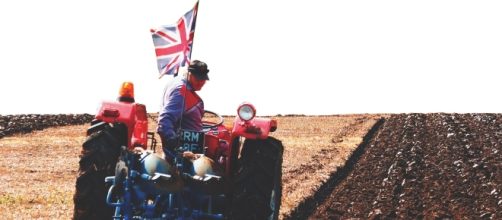The UK think tank, the Policy Exchange, has issues a report recommending that ministers should end farmer Food Production subsidies. Stating the freeing up of funds could be spent elsewhere, such as the NHS. The report also suggests that the UK should lower tariffs on agricultural products post-Brexit from countries all over the world, not just the EU. Currently as a member of the EU, the UK is obliged to levy the same tariffs as other EU nations.
What could this mean for UK farming and what direction does the report from the think tank suggest going?
Farming is a traditional industry for the UK and it is vital that we continue to improve our standards.
Phasing out food subsidies
The issue with the think tank’s idea is that it would mean the UK would become almost entirely dependent on imported meat and lowering of tariffs could see the lowering of standards. Reports have already been made about chlorine-washed chicken and hormone-treated beef, which are currently banned under EU regulation. The think tank suggested that the government should pay them for other activities, such as protecting the environment.
This follows Michael Gove’s first big speech as environment minister, where he confirmed that farmers are guaranteed the £3 billion annual subsidies post-Brexit until at least 2022.
Furthermore, he also said that future subsidies would be dependent on the wider benefits offered to the public from farmers, such as environmental protection.
The report says that from 2020 all food production subsidies should be phased out and gone by 2025. The problem is that the think tank, the Policy Exchange, Gove was one of the founders and the report suggests that we cannot keep up with farming standards in New Zealand and elsewhere. However, New Zealand is bad comparison because after they cut food production subsidies, 70% of farmers went out of business and whilst it is reported that their industry is ‘thriving’, those reports come from the big business that can afford to set up.
More than meets the eye?
Either way, if the reports are correct and New Zealand farming is at its height, it took a long time to get there and real investment into other areas of farming such as environmental protections. The government would need to ensure that significant costs for environmental protection infrastructure would be either subsidised entirely or at least partly.
Except there is one part of the report that suggests something else could be at play here. The report says that if removing the subsidies caused farmers to give up farming, there should be a mechanism in lace for redesigning agricultural land for other purposes such as housing. This suggests that land that would have previously been used by a business that has been contributing to the UK economy be sold off to build housing, the issue is that the report implies that it should go to the private sector.
The centre-right think tank could possibly be suggesting that the UK purposefully forces farmers out of business to then sell off the land to the private sector and share some of the land-value gains with the farmers, not all or even most, just some of the gains. However, that interpretation is entirely up to you.

